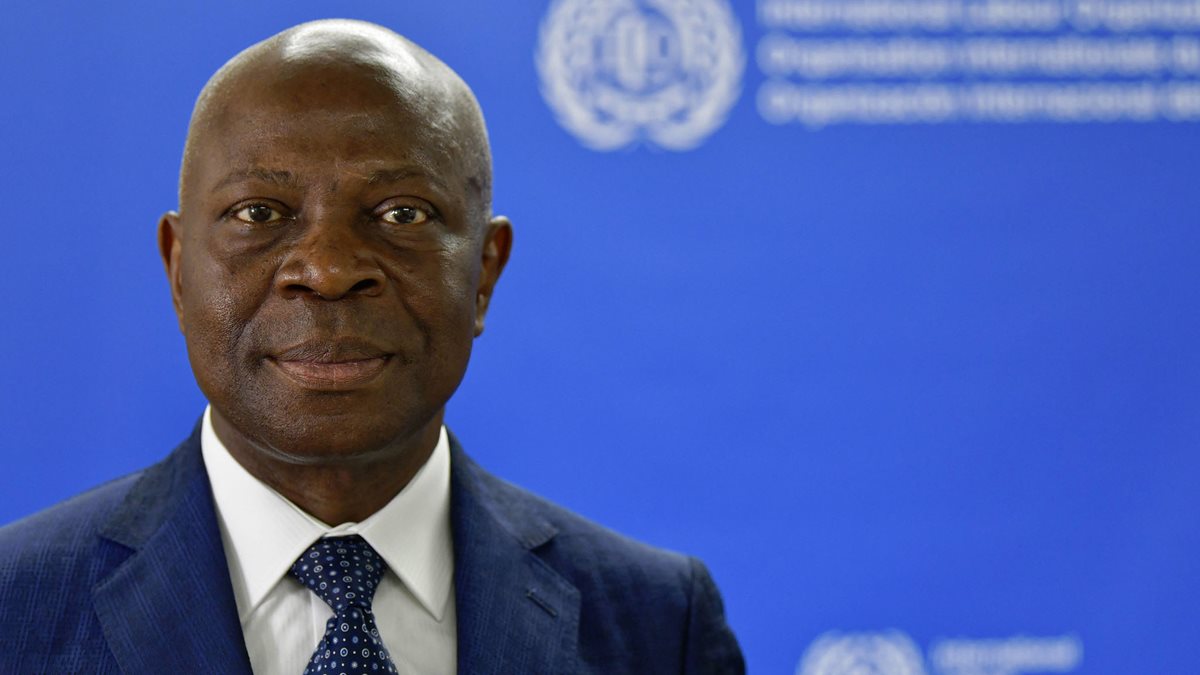Published in February 2024
ILO Programme Implementation Report 2022-23
In 2022-23, the ILO achieved more than 1,000 decent work results in 143 Member States and territories. This report analyses the performance of the ILO in the biennium and highlights its contribution to the global promotion of social justice.

Advancing social justice in a world in crisis
This report – the first programme implementation report prepared under my leadership – summarizes two years of ILO performance. It highlights the actions of the Organization to support its constituents in addressing the severe realities and seizing the strategic opportunities confronting them in the biennium, both nationally and internationally.
In this context, the Governing Body’s decision in November 2023 to establish a Global Coalition for Social Justice reflects the ambition of the Organization to generate increased political commitments and investments and to foster concrete actions towards social justice and decent work, in support of national priorities.
While the challenges we face are multiple and complex, the common thread that runs through the report is simple: progress towards social justice through decent work is possible and yields tangible benefits for people and enterprises, especially those most vulnerable to decent work deficits.”
Gilbert F. Houngbo, ILO Director-General

The ILO in 2022-23: Quick facts
More than 3,500 people work at the ILO – 33% working at headquarters and 67% in the regions. 54% of all staff are women.
Total expenditure of US$1.6 billion (51% from the regular budget and 49% from voluntary contributions).
1,039 decent work results achieved in 143 Member States and territories.
Endorsement of the launch of the Global Coalition for Social Justice, strengthening the ILO’s leading role in the 2030 Agenda for Sustainable Development and in the run-up to the 2025 World Social Summit.
Inclusion of a safe and healthy working environment as a fundamental principle and right at work and adoption of the Quality Apprenticeship Recommendation, 2023 (No. 208).
Organization of the 21st International Conference of Labour Statisticians and adoption of a resolution concerning statistics on the informal economy.
97 ratifications of Conventions and Protocols by 51 countries, including 26 ratifications of the Violence and Harassment Convention, 2019 (No. 190).
Increased action to promote decent work in crisis situations.
Major progress in transparency of ILO data, with a 100% increase in the ILO’s overall score (from 28 to 56) in publishing statistics of the International Aid Transparency Initiative (IATI), including monthly updates.
Budget and expenditure highlights
The total regular budget expenditure over the biennium was US$841.3 million, 98.7% of the budget, and extrabudgetary expenditure was US$800.7 million (of which US$24.4 million from the Regular Budget Supplementary Account (RBSA), more than 45% over the estimates.
The RBSA expenditure during the biennium, corresponding to 1.5% of the total, contributed to 10% of the country results achieved in this period, confirming the strategic relevance of this source of funds to respond to constituent demands in priority areas.
Voluntary contributions of ILO partners
About 140 ILO partners, including governments, multilateral agencies, the private sector and civil society organizations, provided voluntary funding to the ILO.
New approvals in 2022–23 reached an unprecedented US$992 million, demonstrating the solidarity of the ILO partners and their recognition of the importance of social justice and decent work to address global challenges.
Results by policy outcome
The ILO contributed to 1,039 results achieved in 142 Member States, one territory and five regional or subregional organizations across the eight policy outcomes, surpassing the biennium’s target by 8%.
The keys to success
Leadership and partnerships
- In November 2023, the ILO Governing Body decided to establish a Global Coalition for Social Justice, bringing together the ILO, UN agencies, international financial institutions, civil society, development partners, multinationals, private foundations, academia and other stakeholders, to foster concrete actions towards social justice and decent work, in support of national priorities.
- The ILO expanded its footprint by implementing development cooperation projects in 144 countries and territories across all regions with the support of 140 funding partners from the public and private sectors.
Knowledge and communication
- The International Conference of Labour Statisticians organized in October 2023 adopted a landmark resolution concerning statistics in the informal economy that will facilitate data collection and policymaking in this area.
- A research repository launched in November 2023 includes more than 21,000 ILO knowledge products.
- Audiences, followers and readers of ILO communication materials grew in most digital channels and social media platforms, such as LinkedIn (+61%), Facebook (+13%) and X (+13%).
Governance and management
- Operations in the biennium were marked by expanded accessibility and availability of its information technology products and services, strengthened remote work capabilities, enhanced operational efficiency, and reduced administrative overheads, all while maintaining a commitment to sustainable resource utilization within the ILO.
- New measures were introduced to ensure that the ILO is an employer of choice for diverse applicants and its own staff. The rate of P5 or higher regular budget professional positions filled by women increased to 42%, above the target set for the biennium.